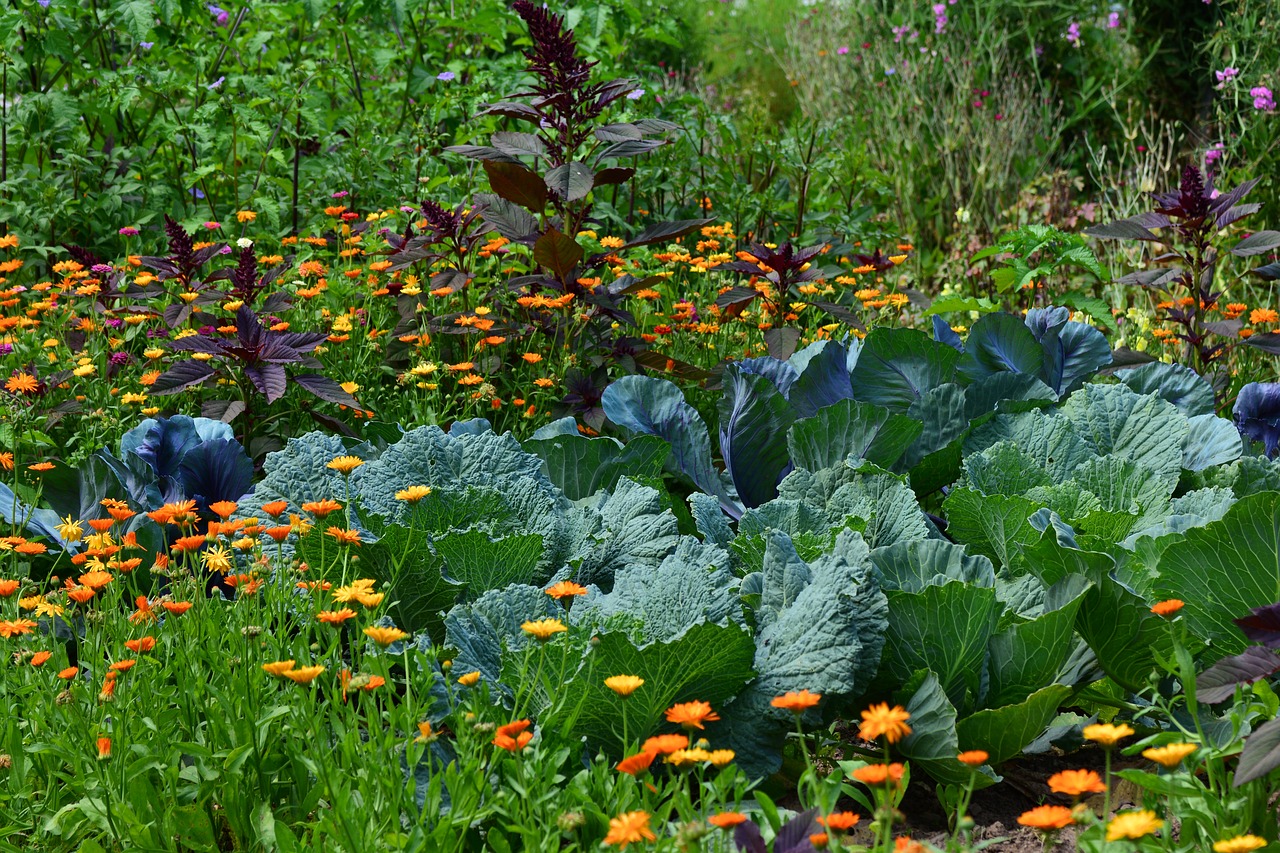Natural ways to control pests are becoming increasingly popular as more gardeners have started to understand the dangers of using traditional insecticides and pesticides. Companion planting is one of the easiest and most effective ways. to combat pests. Certain plant species keep insects and other pests away without affecting the the other plants or beneficial insects.
You’ll need to learn a few basic rules that will ensure the effectiveness of the companion planting for your garden.

Common Companion Plants
Some companion plants drive insects and other pests away. Other species can be used to attract beneficial insects (like ladybugs, for example) that will naturally control the pest populations. Choosing the right plant will depend on the kind of crop and the most common pests that tend to “attack” it.
Marigolds are probably one of the most popular companion plants. Cabbage maggots, aphids, Mexican bean beetles and other insects are kept at bay because of the marigold’s scent. Thus, the flower is a universal companion plant that can be grown alongside different types of crops.
The best companion plants are usually aromatic. Their scent will act as a natural shield or it will attract certain beneficial insects. Some of the best companion plants to consider include thyme, other types of aromatic herbs, catnip and nasturtium.
Plants for Specific Pests
If you’re dealing with a very specific pest infestation, you may want to consider growing a plant that will repel that very species. Let’s take a look at some popular plants that can be used to control the most destructive pests.
Parsley, chamomile, lemon balm and peppermint are the best companion plants to fight caterpillars. Caterpillars are very destructive because they’ll eat just about anything – cabbage, broccoli, cauliflower and green leafy vegetables, to name a few. Parsley, chamomile, lemon balm and peppermint are the best companion plants so they can attract beneficial insects like predatory wasps that will quickly take care of the caterpillar population.
Aphids are also very common and very destructive. They destroy a vast range of crops and they can be particularly difficult to manage. Ladybugs are the biggest natural enemy of aphids, which means you should look into companion plants that ladybugs like. Some of the options include coriander, fennel, yarrow and dill. They will appeal to ladybugs and to green lacewings – another aphid enemy.
To protect potatoes from the Colorado potato beetle, plant catnip between the rows. Planting alternating rows of beans and potatoes is also a good idea because the two plants can act as companions to each other.
Moles are another very common pest and gardeners know that they can be particularly challenging. Planting castor beans around the garden and forming a natural “border” will keep the moles away. Other companion plants to try include yarrow and daffodils. The last two plants will also repel mice.
To deal with rabbits, plant onions – delicious and beneficial at the same time!
Need to protect your tomatoes? Plant them alongside some asparagus for the best natural insect control.
Using Sacrificial Plants
There’s one final companion planting strategy that’s very effective – the use of “sacrificial” plants. These are plants that will tempt the insects and keep them away from the actual crops. Thus, if a pest infestation is completely impossible to control, the use of sacrificial companion plants is one of the best natural control methods.
Nasturtiums rank among the best sacrificial plants. They attract black aphids and they grow really fast. When pests are drawn to the plant, they can be hand-picked easily. Ripping the plants off the ground and discarding them is the easiest natural control option for unmanageable infestations.
Basil is also great because it attracts whiteflies and keeps tomatoes ripe and healthy.
Scented geraniums attract the Japanese beetles that are a common green bean pest. The adult beetles eat the scented flowers, which happen to be poisonous to them.
One final thing to remember is that companion plants require the same type of care that regular crops do. Keeping them watered and weed-free is essential to maintain the health of the companion plants. Some of these are edible and flowering species, which means that keeping them healthy will contribute to an even better garden.



